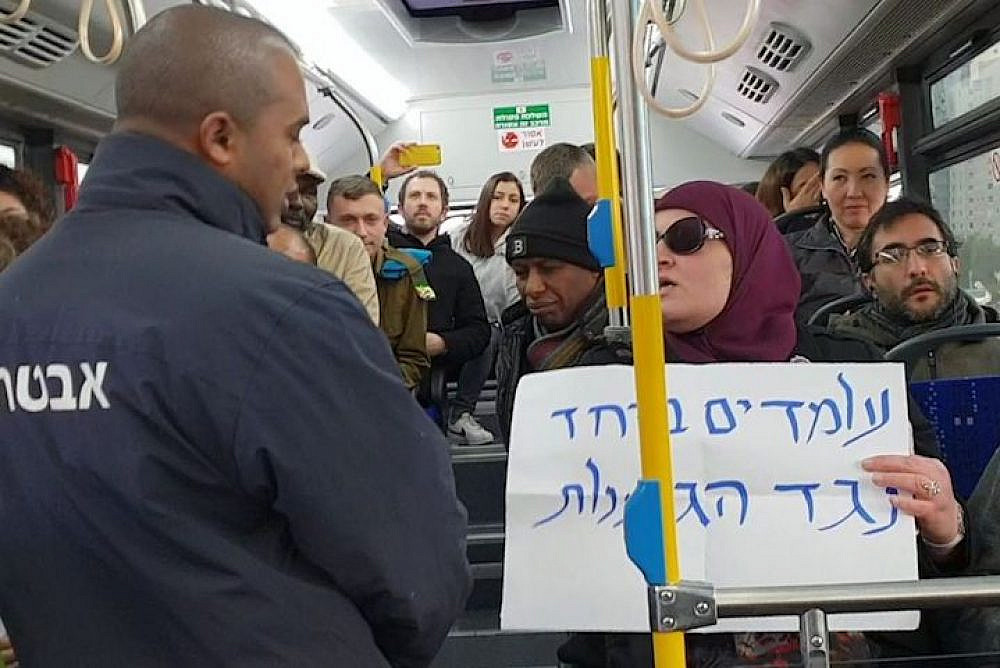Security guards at a hospital in southern Israel have ceased a controversial practice of racially profiling Palestinian passengers on buses that enter the hospital premises, according to statements made during a hearing at Israel’s High Court of Justice Monday morning.
Local Call’s Yael Marom exposed the practice in Jan. 2019, whereby security guards at Barzilai Medical Center in Ashkelon would step onto buses at the hospital entrance and ask passengers deemed to appear Arab to show their IDs. If the passengers were Palestinians, the guards would force them off the bus, and would only allow them back on as the bus left the hospital premises.
A spokesperson for Barzilai Medical Center insisted at the time that only Palestinian residents of the West Bank and Gaza were being singled out for extra inspection and removed from the bus line, insisting that it is “carried out respectfully” while justifying the practice on ambiguous security grounds.
One local resident who regularly rides that particular bus line, however, told Local Call that she had seen Palestinian citizens of Israel being pulled off the bus on numerous occasions. (Palestinian residents of the West Bank have green ID cards, while Israeli residents and citizens, including Palestinians, have blue IDs.)
Following the Local Call report, more than 3,000 people signed an online petition demanding the hospital cease singling out and removing Palestinian passengers from the bus line. Days later, Jewish and Palestinian activists from the Israeli grassroots group “Standing Together” held a protest action in which they were removed from a bus at the entrance to Barzilai after refusing to show their ID cards and demanding to know why non-Arab passengers weren’t asked to show theirs.
Adalah and the Association for Civil Rights in Israel (ACRI), along with the Forum Against Racism and Physicians for Human Rights-Israel, petitioned the High Court to put an end to the procedure. During Monday’s hearing, the state admitted there was an official procedure that included checking passengers for a “suspicious marker,” which seems to have included appearing Arab.
The justices — High Court President Esther Hayut, Uzi Fogelman, and Menachem Mazuz — criticized the hospital’s conduct. After the state introduced a confidential interim procedure to the justices, Hayut stated that “the suspicious marker was removed from the procedure” and that now those suspicious markers are “neutral.” In this way, Hayut strongly hinted the previous procedure actually included racial profiling, yet added that nowhere in the procedure does the word “Arab” appear.
Adalah Attorney Sari Arraf told Local Call that the bus line began entering Barzilai Medical Center in 2018, after which the police likely issued a directive regarding passenger inspection. According to Arraf, the High Court hearing revealed that this directive included “a problematic definition” of what constitutes a “suspicious marker.” Arraf added that while the court accepted the state’s request not to disclose the directive’s contents, he suspects that it in fact refers to Arab appearance.
The court ruled Monday that the state has 90 days to provide an update on its progress in formulating a permanent procedure. Arraf and Attorney Anne Suciu of ACRI noted that “the fight against profiling will continue as long as there is no definitive norms according to which neither the state nor any of its affiliates are allowed to distinguish and refer to people according to their origin.”
This article was first published in Hebrew on Local Call. Read it here.


